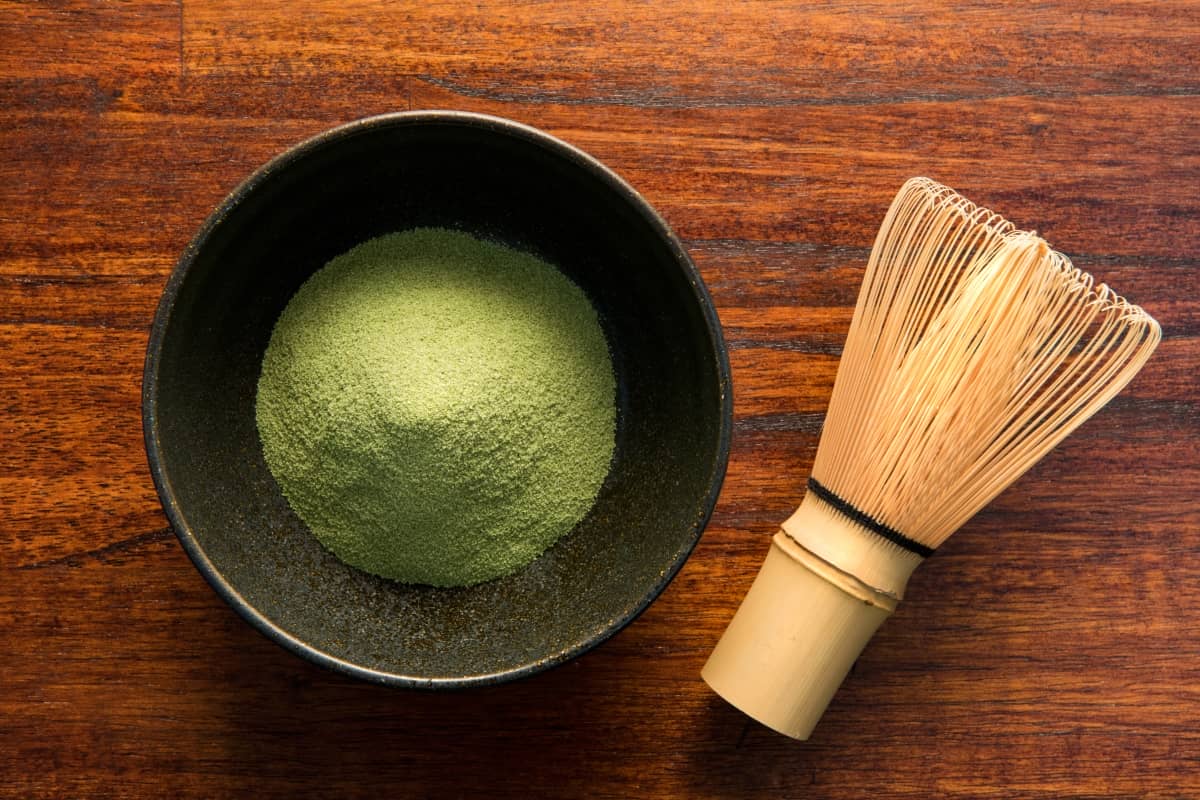Podcast: Download
Subscribe: Apple Podcasts | RSS
 Can tea help your memory and improve your focus?
Can tea help your memory and improve your focus?
Maybe.
But you have to be careful.
That’s because a lot of people throw out scientific studies.
You read them and think: “That’s the tea for me.”
But those studies don’t show you all the nuances you need to drink tea safely.
See, various teas for concentration or focus interact with other supplements you might be taking and can wind up making things worse. Or, they can interact with your diet overall.
So in this post, we’re going to look at the truth about tea for better memory and brain health.
It’s easy to understand and the information I’ve researched and tested personally will help you make better choices overall.
The Best Tea for Memory, Studying, Focus, and More
Let’s start by approaching the topic counterintuitively:
What’s better?
A tea you add that stimulates focus?
Or a tea that helps remove distractions so that you can focus?
The answer to this question is ultimately something only you can determine. And you do that through experimentation.
Ultimately, the fact of the matter is that many teas have L-theanine, which studies have shown makes you feel more peaceful.
In other words, this substance takes away the feeling of unrest more than it adds focus or concentration.
In fact, Murray Carpenter reported in his book Caffeinated that Starbucks added L-theanine to its coffee to prevent people from getting too buzzed, which in some contexts means too focused and concentrated.
But how you feel is not necessarily the same as being able to focus or concentrate in a way that helps you learn faster and remember more.
Only taking specific actions do that. And that’s why I suggest you learn about tea for memory through experimentation and thinking about what you add vs. what you take away.
Because the truth is that you can often increase your focus by not drinking any teas at all.
That said, I do drink tea and I’ll explain why it has personally been the most effective for me. Let’s get started.
One: Personalized Chinese Herbal Tea
As I mentioned in my study of herbs for memory and focus, everything comes down to removing pain and discomfort.
Since I have chronic pain that leads to brain fog when left untreated, I go to a Chinese Medicine practitioner almost every week.
The tea I’m given is personalized based on where my health stands on a week-to-week basis. And we always check that the tea I’m drinking works in conjunction with my diet overall. That way, there are no problematic interactions.
I’ve had interaction issues in the past, such as when two supplements created confusion, so I’m glad I now get help in order to reduce chronic pain issues.
You need to take these things in consideration for yourself as well – based on every tea you try and how it may interact with everything else you eat and drink.
Two: Matcha Green Tea
Many people have cited straight up green tea as a memory booster.
However, I’ve found better results anecdotally from matcha. And although longest term studies have only been done on mice, they prove the basic point that other dietary considerations matter. In brief, the mice showed better memory only when the matcha was combined with other foods in their overall diet.
But why else might matcha be better than green tea for memory?
Matcha has been shown to have more L-theanine than standard green tea. These higher levels are likely brought out during the detailed preparation process proper matcha goes through.
That said, one study has shown that your working memory could potentially benefit from green tea extract on its own. I tried taking green tea extract for a few months to conduct an n=1 test, but I did not experience any positive results with my memory.
But I did notice bad skin issues as a result of taking green tea extract.
But green tea supplements might work for you. You’ll just have to experiment and keep track of the results.
Three: Yerba Mata
I was first introduced to Yerba Mata while visiting memory expert Jonathan Levi in Tel-Aviv.
As I looked into it, I found studies that show why it works.
First, it helps reduce the destruction of your neurons as you age.
But it can also help prevent negative memories from distracting you while you’re trying to focus your mind.
And that’s undoubtedly while I felt so focused while hanging out with Jonathan and drinking this tea with him for weeks on end.
Here again you see the key principle at play:
It’s not so much about what these teas for focus add. It’s about what they take away.
Tea For Brain Health
When it comes to your personal development, you really do have to experiment.
All of the teas I’ve mentioned on this page have been tested by myself personally.
As mentioned, the biggest consideration I would suggest you make regards interactions between the teas you drink and other substances.
Always remember: there’s a huge difference between foods that are bad for memory and those that are good for it.
And definitely consider staying away from black tea. This study shows that it could lead to suppressing memory formation in living creatures.
A second, major point you need to consider is your sleep in the context of memory improvement. If you constantly fall asleep while reading, tea might not actually help because the teas that help for memory also tend to lead to greater relaxation.
How To Experiment And Find The Best Tea For Concentration And Energy
Here’s how I do it.
As part of how I journal for overall self-improvement, I keep track of what teas I drink and when.
At the end of the week, I look for patterns in how I’m feeling.
A lot of this is guess work, but I get my blood tested regularly, and as mentioned, see my Chinese Medicine practitioner almost every week. I share my journal with her to get another point of view.
Even if you don’t check in with a health professional frequently, developing pattern recognition around what you’re eating and drinking is key.
Finally, always take timing into account. Humans have a 72 hour digestion cycle, if not longer. Journaling helps with tracking back to what may have been consumed a few days ago, something very helpful for people who have memory issues.
Speaking of memory issues, if you’d like to experience better memory, sign up for my FREE memory improvement course:
It will help you remember details like we discussed today.
So what do you say?
Are you ready to think about teas for memory a bit more critically and make better choices?
Thanks for reading and happy sipping!
Related Posts
- Focus First/Memory Second For Business and Lifestyle Success? 2x USA Memory Champ Shares His Secrets
John Graham shares exactly why focus beats all the memory training in the world. Especially…
- How to Focus Better Using a Simple 2-Sentence Concentration Meditation
What if there was a simple (and fast) meditation technique to help you learn how…
- Brain Athlete: Does This Free Memory App Work?
The Brain Athlete App is perfect for training as you work on using Memory Palaces…






